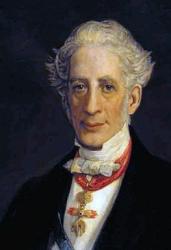Planning worship?
Check out our sister site, ZeteoSearch.org,
for 20+ additional resources related to your search.
- |
User Links
Person Results
Morgan Rhys
1716 - 1776 Person Name: M. R. Author (stanzas 1, 3) of "Dyma Geidwad i'r colledig (Here's a Saviour for the wayward)" in Mawl a chân = praise and song Rhys, Morgan, a famous Welsh hymnwriter of the last century. He published several collections of hymns under quaint titles. Golwg o ben Nebo ar wlad yr Addewid (A View of the land of promise from the top of Mr. Nebo). Frwyd Ysbrydal (The Spiritual Warfare). Graddfanan y Credadyn, &c. (The Groanings of the Believer). He died in 1776, and was buried at Llanfynydd Church, in Caermarthenshire. [Rev. W. Glenffrwd Thomas]
--John Julian, Dictionary of Hymnology (1907)
==================
Rhys, Morgan, p. 959, i. A short notice of this writer (a schoolmaster in connection with the Calvinistic Methodists), is given in H. Elvet Lewis's Sweet Singers of Wales, 1889, together with a few translations into English of his hymns.
--John Julian, Dictionary of Hymnology, Appendix, Part II (1907)
Morgan Rhys
F. Martínez de la Rosa

1787 - 1862 Person Name: Rosa Author of "Al Dios Omnipotente" in Himnario de la Iglesia Metodista Episcopal Born: March 10, 1787, Granada, Spain.
Died: February 7, 1862, Madrid, Spain.
http://www.hymntime.com/tch/bio/m/a/r/t/martinezdelarosa_f.htm
=====================
http://en.wikipedia.org/wiki/Francisco_de_Paula_Martínez_de_la_Rosa_y_Berdejo
F. Martínez de la Rosa
Richard Jones
Person Name: R. J. Author (stanza 2) of "Dyma Geidwad i'r colledig (Here's a Saviour for the wayward)" in Mawl a chân = praise and song Richard Jones, Llanfrothen.
Richard Jones
Johann Baptist von Albertini
1769 - 1831 Person Name: J. B. v. Albertini Author of "Wollt ihr weggeh'n? fragt der Meister" in Die Glaubensharfe (With Melodies) Albertini, Johann Baptist. s. of Jakob Ulrich v. Albertini, a native of the Grisons, Switzerland, who had joined the Moravians, and settled among them at Neuwied, near Coblenz, b. at Neuwied Feb. 17, 1769. After passing through the Moravian school at Niesky, and their Theological Seminary at Barby, in both of, which he had Friedrich Schlciermacher as a fellow-student, he was, in 1788, appointed one of the masters in the Moravian school at Niesky, and in 1789 at Barby. In 1796, he was appointed tutor at the Theological Seminary at Niesky, and ordained as diaconus of the Moravian Church. Up to this time he had devoted himself chiefly to the study of the Oriental languages, and of botany, but now his studies of Holy Scripture for his theological lectures and for the pulpit, brought him to the feet of Christ, whose earnest and devoted disciple and witness he henceforth became. In 1804 he relinquished his tutorial work to devote himself entirely to ministerial labour in Niesky, where he was, in 1810, ordained presbyter. In Feb. 1814 he went to Gnadenberg, near Bunzlau, Silesia, as head of the Girls' School, and preacher; and while on a visit to Herrnhut, was, Aug. 24, 1814, constituted a bishop of the Moravian Church. By the synod of 1818, he was appointed to Gnadenfrei, near Reichenbach, Silesia, and after three years of faithful and successful labour, was chosen one of the heads of the Moravian Church (one of the UnitatS'Aeltesten-Conferenz), his special department being the oversight of their charitable and educational establishments ; and in 1824 President of the Conference. In love and meekness he ruled and visited the churches till, in Nov. 1831, an illness seized him, which terminated fatally at Berthelsdorf, near Herrnhut, Dec. 6, 1831. (Koch, vii. 330-334; Allg. Deutsche Biog., i. 216-217.) Distinguished as a preacher beyond the bounds of his church, he was, in the estimation of Koch, apart from Novalis, the most important hymn-writer of his time— spiritual, simple, and childlike. Yet it must be said that his brother Moravian, G. B. Garve, and E. M. Arndt, are more fully represented in hymnals since 1820. Albertini's hymns appeared to the number of 400, (many, however, being single verses,) in his Geistliche Lieder fur Mitglieder und Freunde der Bruder-yemeine, Bunzlau, 1821 (2nd ed. 1827). None of them have passed into English common use, and the only three we have to note are:—
i. Brenne hell, du Lampe meiner Seele. [Second Advent.] On the Lamp of the Wise Virgin. 1st pub. 1821, as above, p. 139, in 3 stanzas of 8 lines. The only translation is, "Lamp within me! brightly burn and glow," by Miss Winkworth, 1869, p. 311.
ii. Freund, komm in der Fruhe. [Morning.] 1st pub. 1821, as above, p. 273, in 5 st. of 10 1. Tr. as, " Come at the morning hour," by Miss Borthwick in Hymns from the Land of Luther 1862 (cd. 1862, p. 256; 1884, p. 190).
iii. Langst suchtest du, mein Geist! ein nahes Wesen. [Christmas.] 1st pub. 1821, as above, p. 9, in 5 stanzas of 6 lines. Translated as, "Long in the spirit world my soul had sought," by Miss Winkworth, 1855, p. 191 (later eds. p. 193), assigned to St. Thomas's Day.
-John Julian, Dictionary of Hymnology (1907)
Johann Baptist von Albertini
Julius Koebner
Person Name: Julius Köbner Author of "O du armes Volk, wie herrlich" in Die Glaubensharfe (With Melodies)
Julius Koebner


 My Starred Hymns
My Starred Hymns


